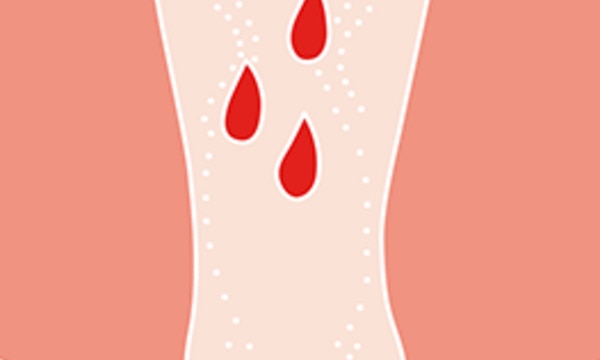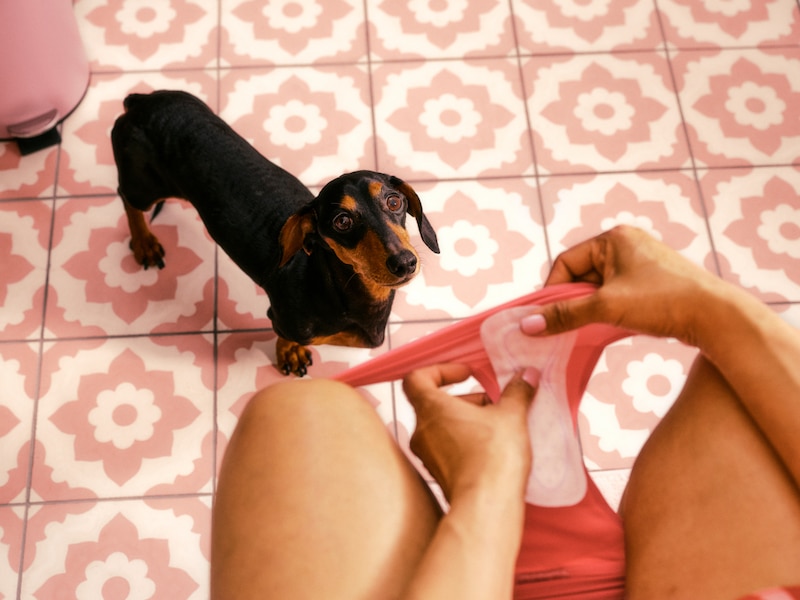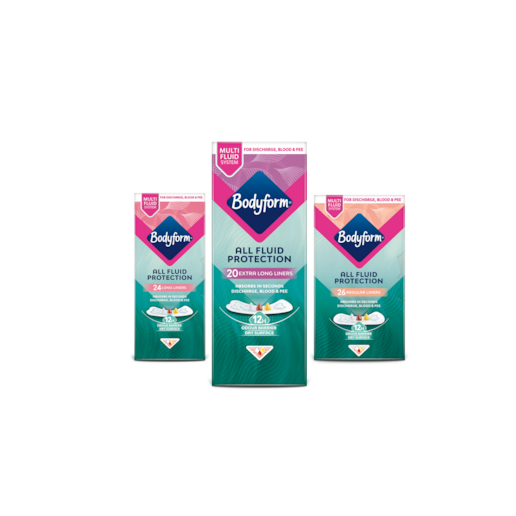

Light incontinence: just a little bit of pee
Incontinence can feel like a scary word, but losing a few urine drops is something that many people experience for all sorts of reasons.
Sweat, discharge, and spotting are all common and normal types of daily intimate fluids that women can experience at any age. In most cases, they are even a sign of a healthy vagina. On top of these type of daily intimate fluids, people might also experience a few drops of urine, from time to time.
Light incontinence is nothing to feel embarrassed about. After all – it’s only a little bit of pee! It is important to identify why you might be experiencing this, so that you can get the support and treatment you need. Let’s learn more about why this might be happening, and what you can do about it.
So, what is light incontinence after all?
The phrase ‘urinary incontinence’ simply means a lack of voluntary control over going to the toilet. We’re only ever told that it is older people who suffer with incontinence, but the truth is that it can affect anyone, both men and women, at any age.
There are a few different types of incontinence. Stress urinary incontinence is when you release a little pee when you exert yourself – such as coughing, sneezing, lifting a heavy object or laughing uncontrollably! Another common type is urge urinary incontinence, which is when you have a sudden, desperate urge to pee and are unable to get to the toilet in time.
Light incontinence is what we call it when you might experience drops of pee at certain times or in certain situations. Despite light incontinence being very common, many of us still feel ashamed acknowledging this. It’s time we shed some light on the issue, to remove the stigma that many people still have to deal with. It can make the world of difference to be able to share your concerns with a loved one, or to see light incontinence as something common rather than isolating and shameful.
What might cause me to experience light incontinence?
There are all sorts of causes and reasons for experiencing light incontinence. You’re not alone – it affects almost 423 million people worldwide!1 It could be caused by any number of triggers – from conditions that impact your urethra (the tube that carrier pee from the bladder to outside of your body) and bladder like Urinary Tract Infections (UTI) to taking certain medication that affect how much you pee. If you were born male, it can also be to do with problems around the prostate gland.
There are a few common causes that explain why women might be more likely to deal with drops of pee:
Pregnancy
During pregnancy, your body goes through many changes to accommodate a baby. Pregnant women tend to have smaller bladder capacity, which isn’t helped by the fact that some babies enjoy kicking your bladder like a football. Hormonal changes during pregnancy can also weaken your muscles and affect the tone of your perineum (the region between your vulva and anus). The muscles around your bladder also get put under a lot of pressure.
We’ve written an article all about how your body changes after giving birth, so you can find out what to expect after you’re done expecting and when everything might settle and calm down.
Giving birth
Giving birth to a baby can be marvellous, miraculous and messy – we can all recognise that it will bring so many changes to our lives and bodies, both mentally and physically.. Though many women don’t talk about it, some might experience ruptures, tearing and having a weakened bladder after giving birth. Up to 9 in every 10 first time mothers who have a vaginal birth will experience some sort of tear, graze or episiotomy,2 so it’s a very common occurrence that many women go through.
Your pelvic floor (the muscles that support your pelvic organs) may also be stretched for a little while after giving birth. A study found that vaginal delivery doubles or triples the chance of experiencing stress incontinence, while C-sections have a 50% higher risk3, so it’s something that your mum, grandma, sisters and friends might also have gone through and overcome. Little drops of pee are to be expected post-partum, but it isn’t something you need to suffer with in silence, or accept it will happen forever. Post-partum physio is one of the options you have to help you get back into shape.
Menopause
Along with your periods stopping and the dreaded hot flushes that feel like standing in front of a roaring furnace, another symptom of menopause is that there is less of the hormone oestrogen in your body and lower urinary tract area. The tissue around these areas can become drier, thinner and less elastic. Your pelvic floor muscles may also weaken without oestrogen to stimulate them. This can all result in noticing a few drops of pee every now and again.
Many of us experience light incontinence for a variety of reasons, but the good news is that there are things that can be done to help you live your life to the fullest, regardless if you are also dealing with a few drops of pee.
What treatment options are there if I experience light incontinence?
The lack of education and taboo around talking about the topic means that many people feel insecure and doubtful about what to do when experiencing “a little pee” from time to time. The good news is that no matter what causes your light incontinence, there are always ways to treat and improve the condition itself, while managing the symptoms in the meantime.
All sorts of things can irritate your bladder, such as caffeine, alcohol, carbonated drinks, acidic fruits, spicy food and even chocolate!4 Don’t worry though, you can still tuck into your favourite treats… Simple lifestyle swaps like thinking about what you consume and when can have a big impact – so no more guzzling a litre of fizzy drinks before bedtime.
Another game changer for light incontinence is keeping your pelvic floor strong through exercising the internal muscles. Even just a few minutes each day can help, and you can easily do them while watching TV, scrolling through social media or listening to your favourite tunes.
If you are experiencing light incontinence, even if it’s just a little bit of pee, seek medical advice. A doctor will be able to find the cause and help to work out the best treatment plan for you.
To help manage light incontinence in the meantime, wearing a liner that’s specially designed for all intimate fluids, even a little bit of pee, can give you the support you need. Our Dailies All Fluid Protection Liners absorb 30% more than our regular liners, reduce dampness and help neutralise odours to help you feel fresh and confident, so you can continue living the life you want.
You might also want to try washable absorbent underwear for all fluids, including discharge and urine. It looks and feels just like your regular underwear, but gives protection for up to 12 hours and is reusable.
Medical disclaimer
The medical information in this article is provided as an information resource only, and is not to be used or relied on for any diagnostic or treatment purposes. Please consult your doctor for guidance about a specific medical condition.
[References]



